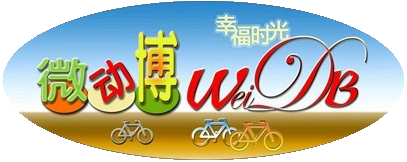õ╣ØÕ╣┤þ║ºÕ¡ªþöƒÞ░êÞÇüÕ©êþÜäÕüÅÞºü´╝ÜHow Teachers are Biased and Why ItÔÇÖs Bad
õ╣ØÕ╣┤þ║ºÕ¡ªþöƒ 10/24 4196
Þ┐Öµÿ»µêæÕ«ÂÞÇüÕñºÕåÖþÜäµ╝öÞ«▓þ¿┐´╝îµêæþö╗ÞøçµÀ╗ÞÂ│Þ«▓Þ«▓ÞâîµÖ»ÒÇé
Úÿ╗Õç╗õ║ÜÞúöþ╗åÕêåµ│ò´╝îõ╗ûÕÆîµêæõ©ÇÕÉîÕëìÕ¥Ç8/10ÕÅÀÕÀ×Õ║£þÜäÚøåõ╝Ü´╝îþø«þØ╣ÕªêÕªêÞÁÂÚ©¡Õ¡Éõ©èµ×´╝îÕ£¿µ▓íµ£ëÕàÂÕ«âµø┤ÕÑ¢õ©ôõ©Üõ║║ÚÇëþÜäµâàÕ¢óõ©ïÒÇüµûùÞâåÕÆîBob HuffÕñ½õ║║õ¢òþ¥Äµ╣äõ©ÇÞÁÀÕüÜÚøåõ╝Üõ©╗µîüõ║║´╝îµêæõ╗¼õ╣ƒµ£ëµ£║õ╝Üõ║ñµÁüõ║åõ║ÜÞúöÕ¡®Õ¡ÉÕàÑÕ¡ªµû╣ÚØóÕÅùÕê░þÜ䵡ºÞºå´╝îÕÅèÕà▒ÕÆîÕàÜõ║║Õªéõ¢òõ©╗Õ╝áõ©ÇÞºåÕÉîõ╗ü´╝îÕ░ñÕàµÿ»Catharine BakerÕªéõ¢òÕ©«Õ讵êæõ╗¼õ║ÜÞúöþñ¥Õî║ÒÇé
õ╣ïÕÉÄõ╗ûÕ║öµêæÚéÇÞ»ÀÕÄ╗õ║åBakerÕè®ÚÇëÕè×´╝îÕÇ¥ÕÇÆõ║ÄBakerþÜäµÖ║µàºÕÆîõ║▓Õêç´╝îÕ¡ªõ╝Üõ║åµëôþöÁÞ»ØÕè®ÚÇë´╝îÕÆîµêæÞé®Õ╣ÂÞé®þ¼¼õ©ÇÕø×µëôþöÁ޻ش╝îõ©ÇÕ╝ÇÕºïÞó½õ║║µïÆþ╗ØÒÇüÕæøÕú░õ╗ûÚØ×Õ©©õ©ìõ╣áµâ»´╝îÞ»┤õ╣ïÕëìõ║║Õ«ÂÕ»╣Õ¥àõ╗ûÞ┐Öõ©¬Õ░ŵ£ïÕÅïÚ⢵ÿ»µ»öÞ¥âÕ«óµ░öþÜäÒÇéScott´╝êBakerÕè×Õà¼Õ«ñþÜäÞ┤ƒÞ┤úõ║║´╝ëÕ«ëµà░õ╗ûÞ»┤´╝îµ▓íÕà│þ│╗´╝î"Kill them with kindness!" Þ┐Öõ©¬Õà│Úö«µùÂÕÇÖþÜäµîçþé╣õ╗ñµêæµäƒµà¿´╝îÕøáõ©║Õ«âþö╗Ú¥Öþé╣þØøÕç║þ¥ÄÕø¢õ║║µûçþÜäÕñºµÖ║µàº´╝îÞÇîÞ┐Öþºìõ©║õ║åÕè®ÚÇëõ╗ûõ║║ÞÇîõ©ìÕìæõ©ìõ║óÒÇüþÖ¥µèÿõ©ìµîáþÜäþ▓¥þÑ×õ╣ƒÕŬµ£ëÕ£¿Õ«×ÞÀÁõ©¡µëìÕ¡ªÕ¥ùõ╝ÜÒÇé Õ░ØÞ»òõ║åÕÑ¢Õçáµ¼íõ╣ïÕÉÄ´╝îõ╗ûþ╗êõ║ÄÞç¬õ┐íµ╗íµ╗í´╝îÞç¬þº░µÿ»þöÁÞ»ØÕè®ÚÇëõ©ôի´╝îÕŬުüµ£ëþ®║Õ░▒µ¼úþäÂÕÆîµêæõ©ÇÞÁÀÕëìեǵëôþöÁÞ»ØÒÇé
Õà│µ│¿þ¥ÄÕø¢ÕñºÚÇë´╝îõ╗ûÕ©©þ£ïFox NewsÒÇéµêæÕ¥êÕÑ¢ÕÑçõ╗ûµÇÄõ╣êõ╝ÜÞ┐ÖµáÀ´╝ƒõ╗ûÞ»┤ÕŬµ£ëFoxµëìµ£ëTrump´╝îõ╗ûµâ│õ©ñÞ¥╣Úâ¢ÞºéÕ»ƒõ©Çõ©ïÒÇéÞºéÕ»ƒþÜäþ╗ôµ×£Õ░▒µÿ»õ╗ûÞ«ñõ©║Õ¬Æõ¢ôõ©ÇÞ¥╣ÕÇÆÒÇéÕåìÕÉĵØÑÕɼ޻┤GoogleµÉ£þ┤óÕ╝òµôÄþÜäÕüÅÞºü´╝îõ╗ûõ©ÇµÉ£µ×£þäµÿ»ÕüÅÒÇé
õ©ïÚØóÞ┐Öõ©¬µ╝öÞ«▓þ¿┐µÿ»Þï▒µûçÞ»¥ÞÇüÕ©êÞªüõ╗ûõ╗¼ÚÇëÚóÿ´╝îõ©ÇÕáåÚóÿþø«ÚçîÚØó´╝îõ╗ûÚÇëõ║åÞ┐Öõ╣êõ©Çõ©¬Þë░ÚÜ¥þÜäÚóÿþø«´╝îÞç¬ÕÀ▒ÕüÜõ║åõ©ìÕ░æÞ░âþáö´╝îÕ濵£½Õ┐Öõ║åÕìèÕñ®ÕåÖÞ«▓þ¿┐ÒÇéõ©ÇÕ╝ÇÕºïõ©ìþƒÑÚüôµÇÄõ╣êÕåÖµëìõ©ìÕ¥ùþ¢¬õ║║´╝îÞ┐ƒÞ┐ƒµùáµ│òõ©ïþ¼öÒÇéµÀ▒þƒÑõ╗ûµ©®ÕÄÜÕñ®µÇºþÜäµêæÚ╝ôÕè▒õ╗ûõ©ìÞªüµÇò´╝îÕàêµèèµâ│µ│òÚâ¢ÕåÖÕç║µØÑÕåìÞ»┤ÒÇéÕåÖÕç║µØÑÕÉÄõ╗ûÞ┐ÿµÿ»Õ¥êµÇòÞÇüÕ©êÕ迵ÇÆ´╝îÕåìµ¼íµ▒éÕè®ÒÇéµêæõ║ĵÿ»Õ©«õ╗ûµèèõ╗ûÞç¬ÕÀ▒þÜäµäÅÞºüÚâ¿Õêåþ╗ƒþ╗ƒÕêáµÄëÒÇéõ¢åÕăµûçÞ┐ÿµÿ»Õñ¬Úò┐Õòª´╝îÞªüÞÂàµù´╝ÜÕŬÞâ¢Þ«▓õ©ëÕêåÚƃþÜä´╝îõ╗ûþÜäÕêÖÚ£ÇÞªüõ║öÕêåÚƃޫ▓Õ«îÒÇéµêæÞÂüµ£║Úù«õ╗ûÞªüõ©ìÞªüµèèÕÉîµÇºµüïÕ®ÜÕº╗Úéúµ«ÁÕÄ╗µÄë´╝îÕøáõ©║ÞºëÕ¥ùÕÀ▓þ╗Åõ©ìÕ▒×õ║ĵ£ëõ║ëÞ««þÜäÞ»ØÚóÿõ║å´╝îõ╣ƒµÇòõ╗ûµâ╣õ©ìÕ┐àÞªüþÜäÚ║╗þ⪴╝îõ¢åõ╗ûÕØܵîüµö¥Õ£¿õ©èÚØóÒÇéþñ╝µï£õ©Çµ╝öÞ«▓µì«Þ»┤ÚØ×Õ©©µêÉÕ胴╝îÕ░ŵ£ïÕÅïÚâ¢Þ┐ÿÞø«Õû£µ¼óþÜäÒÇéÞÇüÕ©êõ╣ƒþ╗Öõ║åõ©¬AÒÇé
µ£ÇÞ┐æþ£ïõ║åõ©Çõ©ñþ»çÕÀªµ┤¥þ▓¥Þï▒Õ¡ªþöƒÕåÖþ╗Öþêµ»ìþÜäõ┐í´╝îõ©Äµ¡ñÕÉîµùµ£ëõ©ìÕ░æþêµ»ìµùáÕÑêÕ¡®Õ¡ÉÕÆîÞç¬ÕÀ▒þ£ïµ│òÕñ®ÕÀ«Õ£░Õê½þÜäµäƒµà¿´╝îµêæµâ│Þ»┤´╝Üõ©ìÞªüµïàÕ┐â´╝îÕ╝ÇÞ»ÜÕ©âÕà¼þÜäõ║ñµÁüµ£ÇÚçìÞªü´╝îÕÆîÕ¡®Õ¡ÉþÜäÕà│þ│╗õ©Äþêµ»ìÞç¬Þ║½þÜäþñ║Þîâµÿ»µòÖÞé▓þÜäµá╣µ£¼´╝îÕ£¿Þ┐Öõ©èÚØóõ╣ƒõ©ìõ¥ïÕñûÒÇé
µêæÕ«ÂÕ¡®Õ¡ÉþÜäµÇصâ│Þ┐ÿÕ£¿ÕÅÿÕîû´╝îÕ»╣õ║Äõ╗ûþÜäµ£¬µØѵêæÕ╣Âõ©ìµÿ»Õ¥êµïàÕ┐â´╝îõ©Çõ©¬µ£ëþï¼þ½ïµÇØÞÇâÞâ¢ÕèøÒÇüõ©ìõ║║õ║æõ║ªõ║æþÜäõ║║µÿ»õ©ìõ╝Üõ©£ÕÇÆÞÑ┐µ¡¬Õ£░ÚÜÅõ¥┐Þó½õ║║Þ»»Õ»╝ÒÇüþ╗æµ×µÇصâ│þÜä´╝îÞ┐Öõ╣ƒµÿ»ÕüÜþêµ»ìÞâ¢Õñƒþ╗Öõ║êõ╗ûõ╗¼þÜäµ£ÇÕÑ¢þÜäþñ╝þë®ÒÇé
There is no doubt that teachers have always been a big part of your life. They are the ones who determine your grade and probably part of your future too. Teaching is a difficult job. Most teachers chose this career because they enjoy teaching and seeing kids grow in knowledge. They are not in for the money or fame or power. However, many teachers are also biased in some ways. Not only are they predisposed to being politically opinionated, which leads to the unavoidable indoctrination of students with their ideas and worldview, but they also make potentially questionable subconscious judgements that can have unintended effects on the students. Teachers should be aware of such things so that they will not impact the kids in bad ways that could be avoided.
Firstly, I will present research pointing to the fact that teachers make subconscious judgements. By this I mean that teachers may allow personal bias to cloud their judgement when it comes to treating students. In an article by The Telegraph written by an education correspondent named Julie Henry, there was a study conducted by the Department of Education to check on their teachers. External moderators checked the ways teachers grade their studentsÔÇÖ essays; the results were not so pretty. In two out of three cases, the teacherÔÇÖs grading was influenced by his or her feelings about that particular student and in 5% of cases the teacher would grade the work way too harshly. The results also stated that teachers will be more likely to give higher grades to students who had neater handwriting or wrote longer stories even if the content of the essays wasnÔÇÖt that good.
Another example of when teachers make bad subconscious judgements is when they make microaggressions; by that I mean subconscious judgements based on stereotypes on race or gender. Teachers may accidentally assume a kid is poor because he is African American, or ask an Asian student to speak on behalf of the other Asians. ÔÇ£Interactions like these have been shown in hundreds of studies to trigger what's known as stereotype threat, the fear that one's actions could confirm a negative stereotype held about his or her groupÔÇØ (Sparks, Sarah par. 10). Teachers are not the only ones who make these mistakes nor are they any more racially biased than most people, but as important role models for students, they really have to be careful. Mistakes like these can also drastically affect a studentÔÇÖs learning.
Now this is when my speech gets political and I may get into trouble for saying the following. Most teachers can also be politically biased. According to a Washington Post poll, more than 75% of American teachers are democrats, not just those in California. George Leef wrote in a Forbes article,ÔÇØTeaching is a political activity and (teachers) accordingly feel justified in using their classrooms as platforms for spreading their social, economic, and philosophical beliefs. They want to act as ÔÇ£change agentsÔÇØ who will improve the worldÔÇØ (paragraph 1). Many kids leave school with the same political ideas as their teacher. Many kids identify as democrat by default. From the time you were in elementary school you were taught that guns are bad and do not solve anything, that gay marriage is completely okay, and that unions and social welfare are good things. Things like history, social studies, politics, and sometimes science are often taught from the teacherÔÇÖs point of view. I am not qualified to say that any of the things they teach are necessarily wrong, but the problem is that students are not exposed to the other side, or the other side is pushed aside. As we all know, teachers want the best for all of their students. For the sake of teaching though, shouldnÔÇÖt teachers present facts and have the students arrive at their own conclusions instead of making the decisions for them? Chris Skidmore, an education committee member writes in his article, How many children leave school with their teacher's political opinions, ÔÇ£There is no doubt that politics teachers, who will often have passionately-held views of their own, have a difficult job. ItÔÇÖs much harder to be unbiased than it is to speak your mindÔÇØ (paragraph 5).
To conclude, teachers are very important role models, educators, and influencers, but many are biased in some ways. To be able to recognize that and avoid doing it as much as they can, will help teachers as well as the kids get better education. As Rita Pierson, an educator, says in a TED Talk video called, ÔÇ£we come to work when we donÔÇÖt feel like it and we listen to policies that dosenÔÇÖt make sense. We teach anyway because thatÔÇÖs what we do. Teaching and learning should bring joy!ÔÇØ
Works Cited
Henry, Julie. "Teacher 'bias' Gives Better Marks to Favourite Pupils, Research Reveals." The Telegraph. Telegraph Media Group, 26 Jan. 2013. Web. 19 Oct. 2016.


